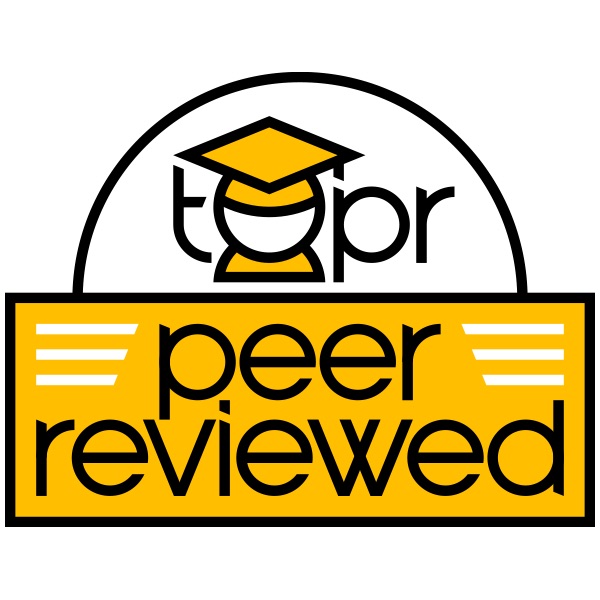
Instructor feedback is an integral component of student learning, but students traditionally are passive recipients of instructor comments (Adachi, 2018). Peer review of assignments encourages social cohesion among students, promotes a better understanding of course material, and develops soft skills. In the most recent National Association of Colleges and Employers (NACE) report, employers are most commonly seeking recent graduates who demonstrate the ability to problem solve and who effectively work on a team (Gray, 2024). Peer review assignments can help students practice these skills. Teaching students to provide quality feedback on peer assignments also allows instructors more direct student engagement opportunities since grading time is reduced (Hattie, 2022). This technique can be adopted for courses in any discipline and provides excellent practice for students to apply their knowledge of core concepts.
Strategy Implementation
All graduate students in the Health Care Informatics online program are required to take HIM6464C Epidemiology, Analytics, and Quality Management, where they learn how to work with and make sense of data in the areas of health care informatics and clinical epidemiology. The course is asynchronous and comprises 16 weekly modules that include textbook readings, recorded lectures, videos, coding tutorials, supplemental readings, and practice activities. Students learn epidemiologic concepts such as descriptive statistics, observational and experimental study design, and measures of association. They apply their skills using hospital discharge data and SAS software through group and individual assignments.
There are four group case studies and a group final exam project that are scaffolded on each other, two individual discussions, and two individual assignments. Students are also required to develop a team charter at the beginning of the semester in the style of a performance improvement team contract that details when they meet, who will lead each case study, how they will resolve conflict, and how they will provide positive feedback to each other. When submitting the case studies and final exam project, students also submit an individual rubric of each group member’s performance.
In 2022, the instructor graded all assignments, but in 2023, individual peer-review grading assignments were added to the four case studies. Students were provided instruction on peer-review grading and expectations at the beginning of the semester, in addition to anonymous examples of previously graded case studies using the rubric by the instructor.
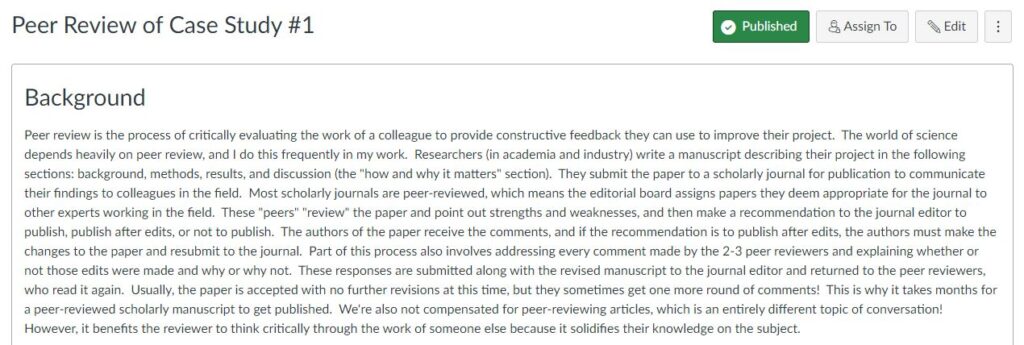
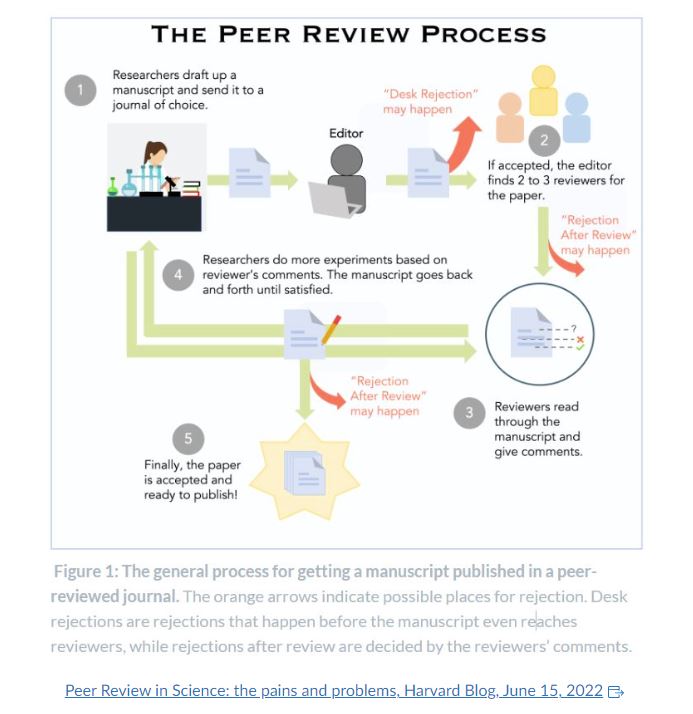
The learning management system (Canvas) was used to assign an anonymous peer review to each student after the group submission deadline, and they had one week to use instructor-provided solutions to thoroughly detail the strengths and weaknesses of their assigned review using the rubric. Peer-reviewed scores were averaged for each group to determine the final case study grade, and the instructor graded individual peer reviews.
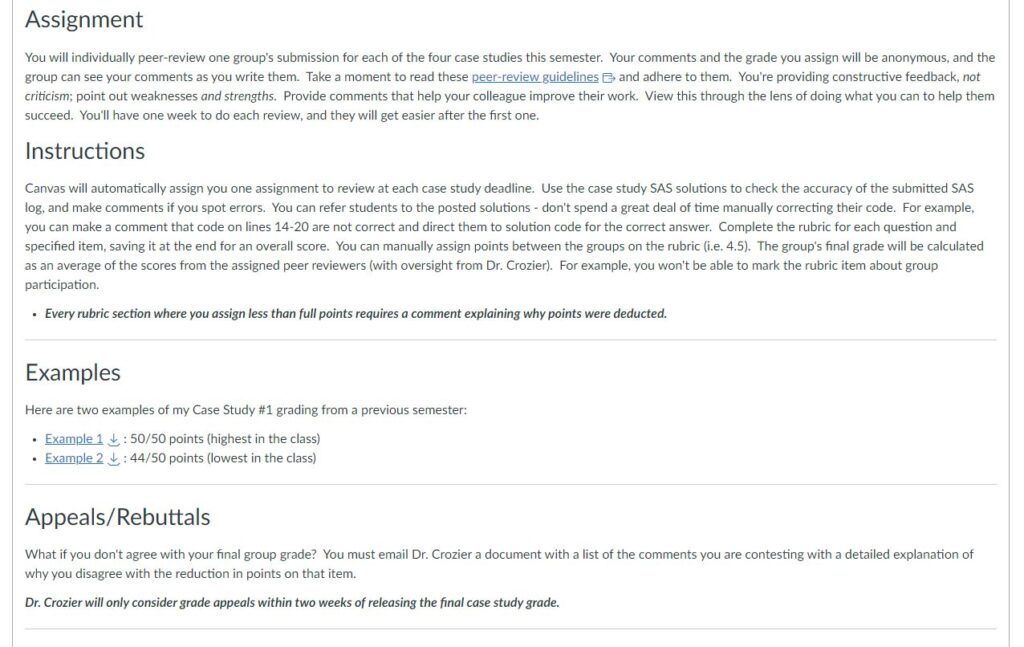
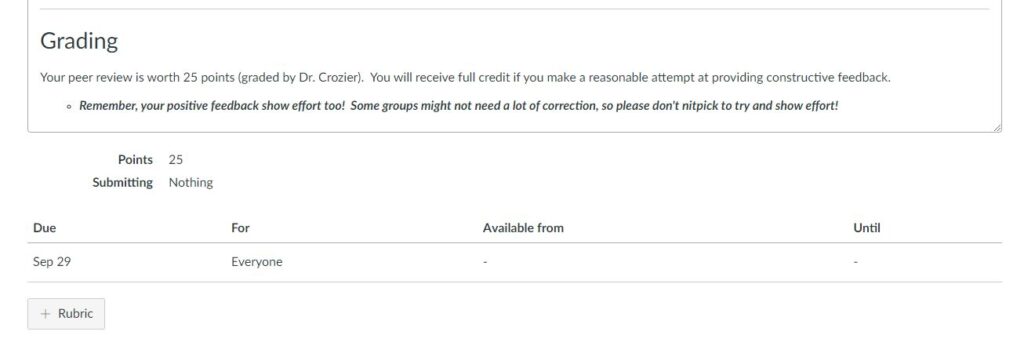
The average class score on case studies, the final exam project (graded only by the instructor in both years), and the final course average remained the same or improved between 2022 and 2023. The average instructor rating also increased after implementing peer review. Instructors should consider integrating peer review into their curriculum as an effective and efficient teaching tool that provides the instructor additional time to engage with students.
Scholarly Reference(s)
Adachi, C., Hong-Meng Tai, J., Dawson, P. (2018). Academics’ perceptions of the benefits and challenges of self and peer assessment in higher education. Assessment & Evaluation in Higher Education 43(2), 294-306.
Gray, K. (2024, January 16). The key attributes employers are looking for on graduates’ resumes. NACE. https://www.naceweb.org/talent-acquisition/candidate-selection/the-key-attributes-employers-are-looking-for-on-graduates-resumes.
Hattie, J., and Hattie, K. (2022, March 1). How to give feedback to develop great learners. Routledge Press. https://www.routledge.com/blog/article/how-to-give-feedback-to-develop-great-learners.
Citation
Crozier, M. (2024). Employing a Multi-Disciplinary Approach to Improve a Graduate-Level Health Care Informatics Epidemiology Course. In deNoyelles, A., Bauer, S., & S. Wyatt (Eds.), Teaching Online Pedagogical Repository. Orlando, FL: University of Central Florida Center for Distributed Learning.